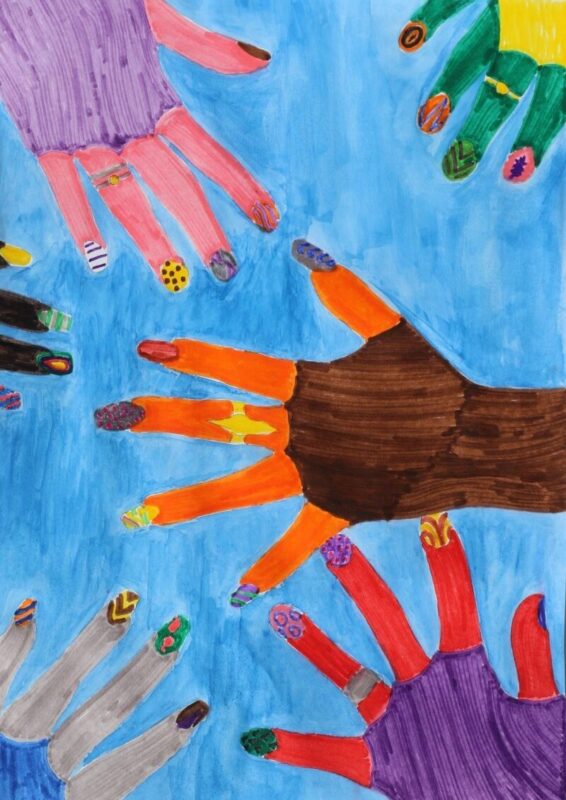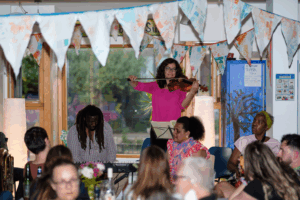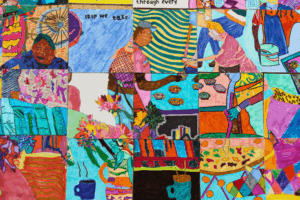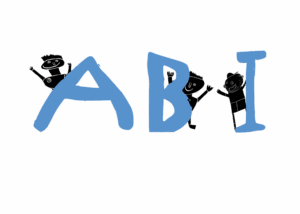Today we’re catching up with Casework Manager Natalie, who regularly connects with, and supports carers. Her team run monthly support groups, provide Early Intervention at hospitals, and provide a range of practical and emotional support to families and carers at all stages of their brain injury journey. We’re also hearing from “N”, who unexpectedly became a carer for her mum and reached out to Headway for support.
Why is support for carers so important after brain injury?
Natalie: Many carers we talk to speak about going through their own grieving process. They’re feeling the loss of the person they fell in love with (or bought up) pre-injury, and the life they previously had, and that requires a great deal of external practical and emotional support (from us).
Running alongside and crucial to this is education regarding brain injury. Most carers coming to us early on have understandably very little or no knowledge of brain injury. Providing information in a considered and supportive way allows carers to make sense of the changes in their loved ones; helps them experiment with coping strategies, and it also reintroduces some control. Both survivor and carer can sometimes feel they have lost control of their lives, and feel fear of what the future may hold. By learning about brain injury, its symptoms, what’s “normal” afterwards, and strategies to cope, it leaves everyone feeling more involved and in control.
During lockdown there’s a real feeling of isolation, and increased pressure. With survivors feeling trapped, and not able to carry out fun and independent things they once did because it can increase frustration, and unhealthy habits and behaviours, which often impact the carers. We’ve doubled the number of support groups we previously ran in person, and we’re dealing with a number of cases supporting survivors and their families in emotional distress.
What are some of the other practical ways your team supports carers?
Natalie: Other than the complex emotional journey of grief, we find supporting individuals to navigate the welfare benefit system really important. Once you feel more financially stable, people can start to address the more emotional and behavioural changes and challenges they face. This can involve help with housing – ensuring families are living in a safe and appropriate home – or informing carers they are eligible to receive a carer’s needs assessment under the Care Act 2014, and that every council have a legal duty of care to follow this law and identify carers needs and address them.
These things are to ensure the survivor is safe to live their lives, which in turn supports the carer feel more at ease, and allows them time and space to look together at gaining an understanding of their new relationship after brain injury.
N’s story
“On my darkest day when I didn’t know where to turn, Natalie and the Headway East London team took the time to help and support me and my mum, I am endlessly appreciative.
My Mum suffered frontal lobe damage 35 years ago, my Dad was her primary carer, until he unexpectedly passed away and I was left to pick up the baton. I simply didn’t know what to do or where to turn. In searching for help from someone who might understand the complex needs I stumbled across Headway in East London. From the first interaction, the team have shown such support and compassion. They understood my mum’s needs immediately, and were able to help and support me in learning about it all myself and offering a real shoulder to cry and lean on whilst giving practical advice and the encouragement I needed to best help my Mum.
I went into the centre and the environment they have created is a credit to the team, it’s warm and inviting. It is a place of kindness and safety, there’s a real buzz about the place and all who use it seem so happy and at ease.

I cannot thank them enough for all they are doing; head injuries are complex and at times difficult to understand but they give relentless support and respite to those in need where others would shy away. We are all lucky to have you and I feel so grateful. Thank you Headway East London, you are simply the best and irreplaceable.”
If you’re a carer and in need of support, please contact Natalie at casework@headwayeastlondon.org to explore how the team can help you.




